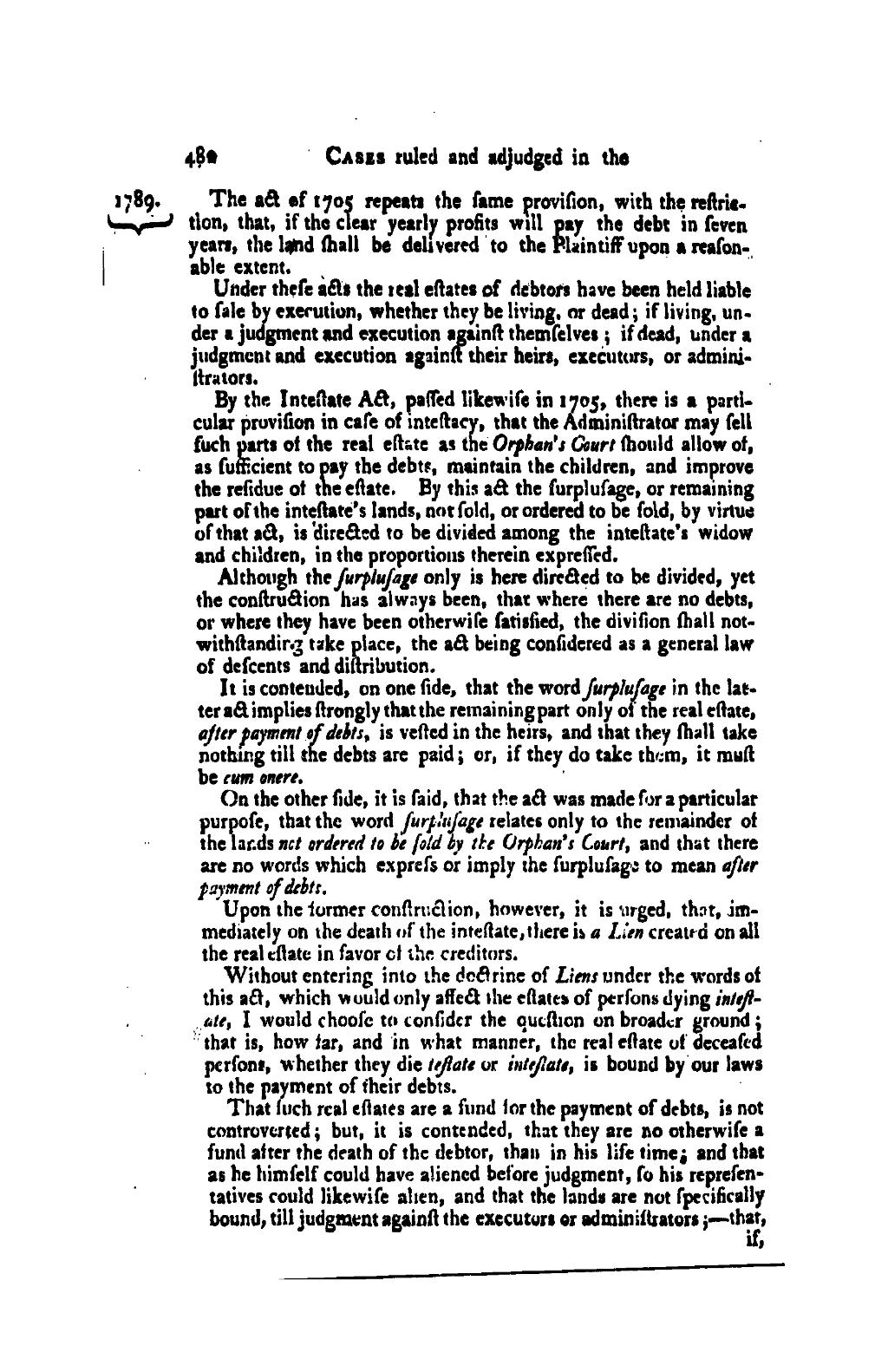1789.![]()
The act of 1705 repeats the fame provifion, with the reftriction, that, if the clear yearly profits will pay the debt in feven years, the land fhall be delivered to the Plaintiff upon a reafonable extent.
Under thefe acts the real eftates of debtors have been held liable to fale by execution, whether they be living, or dead; it living, under a judgment and execution againft themfelves; if dead, under a judgment and execution againft their heirs, executors, or adminiftrators.
By the Interftate Act, paffed likewife in 1705, there is a particular provifion in cafe of interftacy, that the Adminiftrator may fell fuch parts of the real eftate as the Orphan's Court fhould allow of, as fufficient to pay the debts, maintain the children, and improve the refidue of the eftate. By this act the furplufage, or remaining part of the interftate's lands, not fold, or ordered to be fold, by virtue of that act, is directed to be divided among the interftate's widow and children, in the proportions therein expreffed.
Although the ʃurpluʃage only is here directed to be divided, yet the conftuction has always been, that where there are no debts, or where they have been otherwife fatisfied, the divifion fhall notwithftanding take place, the act being confidered as a general law of defcents and diftribution.
It is contended, on one fide, that the word ʃurpluʃage in the later act implies ftrongly that the remaining part only of the real eftate, aƒter payment oƒ debts, is vefted in the heirs, and that they fhall take nothing till the debts are paid; or, if they do take them, if muft be cum onere.
On the other fide, it is faid, that the act was made for a particular purpofe, that the word ʃurpluʃage relates only to the remainder of the lands not ordered to be ʃold by the Orphan's Court, and that there are no words which exprefs or imply the furplufage to mean aƒter payment oƒ debts.
Upon the former conftruction, however, it is urged, that, immediately on the death of the inteftate, there is a Lien created on all the real eftate in favor of the creditors.
Without entering into the doctrine of Liens under the words of his act, which would only affect the eftates of perfon dying inteʃtate, I would choofe to confider the queftion on broader ground; that is, how far, and in what manner, the real eftate of deceafed perfons, whether they die teʃtate or inteʃtate, is bound by our laws to the payment of their debts.
That fuch real eftates are a fund for the payment of debts, is not controverted; but, it is contended, that they are no otherwife a fund after the death of the debtor, than in his life time; and that as he himfelf could have aliened before judgment, fo his reprefentatives could likewife alien, and that the lands are not fpecifically bound, till judgment againft the executors or adminiftrators ;–– that,
if,

